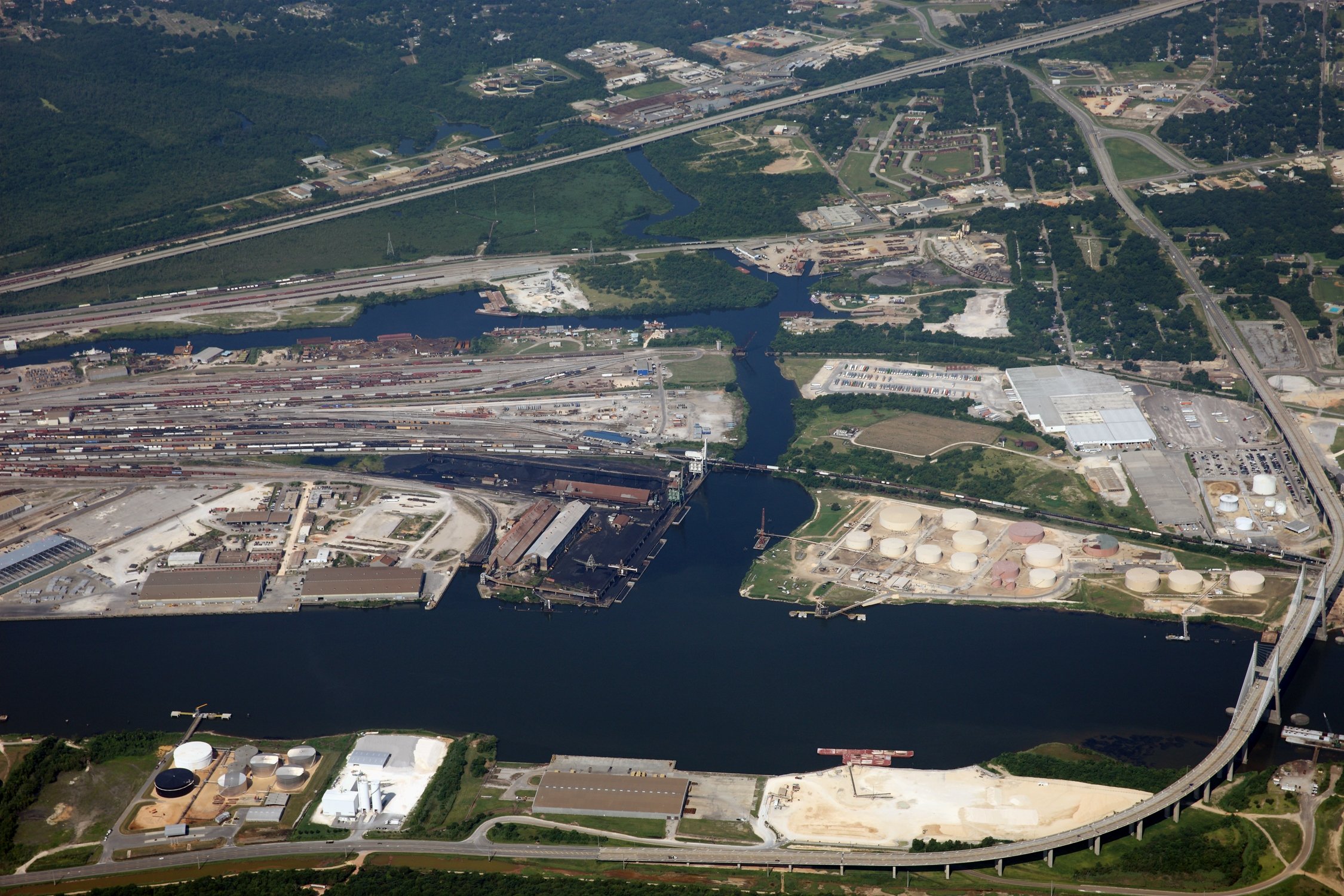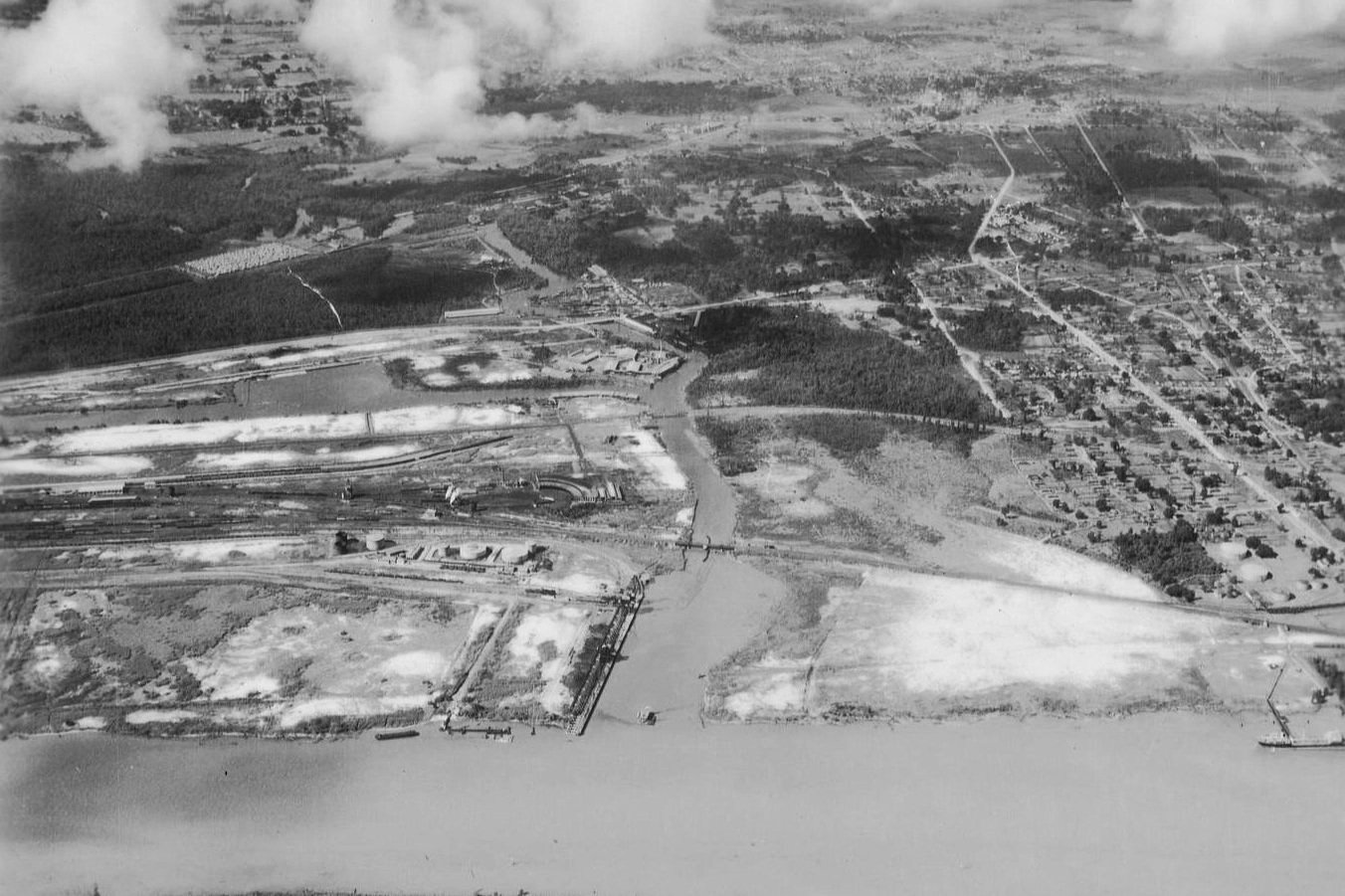
Our Port in History
Since 1711, Mobile has had the distinction of hosting Alabama’s only deepwater port, a proud heritage that has shaped our region’s unique culture and customs. Generations of Mobile Bay-area families learned their vocations and made their livings due to the presence of the Port and its network of trades and industries.
In the early years, The Port City became a shipping center for cotton, timber and coal. During the two world wars, Mobile became a center of shipbuilding for the region, with our men and women providing critical skills and support for the war effort and our troops.
The Port’s international trade has also brought great cultural diversity to our area: Mobile has flown under British, French, and Spanish flags and, over the years, has had thriving German and Italian communities.
When business interests recognized the limits that the shallow harbor placed on the City's economic future, they lobbied the state for harbor improvements which helped Mobile become one of the largest ports in the South by the 1850s.
Our Seaport Terminals Today
Today, as the Port pursues vigorous investment to increase its competitiveness, cultural diversity is booming once again. With an increased international presence of companies from Europe to Asia, the Port is thriving, providing opportunities for our children and their families to build their careers and their futures here at home.
Port activity generates one in seven jobs in the state of Alabama – more than 351,000 – and $22.5 billion in wages and salaries. Those 19,911 people directly employed in marine cargo and vessel activity earn $1.2 billion, an average of $59,339 per year, and almost $10 K more than the average statewide salary.
The second fastest growing port in the country, the Port of Mobile has expanded in containerized shipping and added automobiles, aeronautics and steel to its historic base of shipping commodities, including aluminum, chemicals, coal, iron, lumber, oil & gas, and wood pulp.
As an officially designated Energy Transfer Port, Mobile is recognized for its leading and expanding role in the energy trade that further supports our nation’s growing energy independence. The Port’s energy logistics chain, comprising large and small businesses, feeds much of our manufacturing and transportation industries and is vital to employment and the overall health of our regional economy.
Energy product terminals in the Port of Mobile provide feedstocks for our state and local manufacturers, fuel for automobiles, trucks, ships, tugboats and offshore service vessels throughout our region, and for asphalt production that is used to pave local roadways. Close proximity to these facilities helps keep local energy prices lower than the national average.



